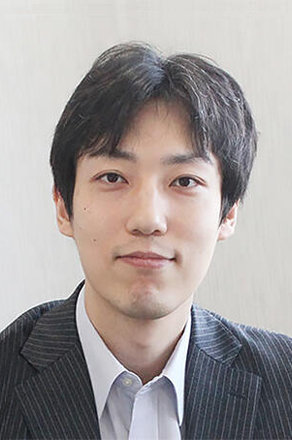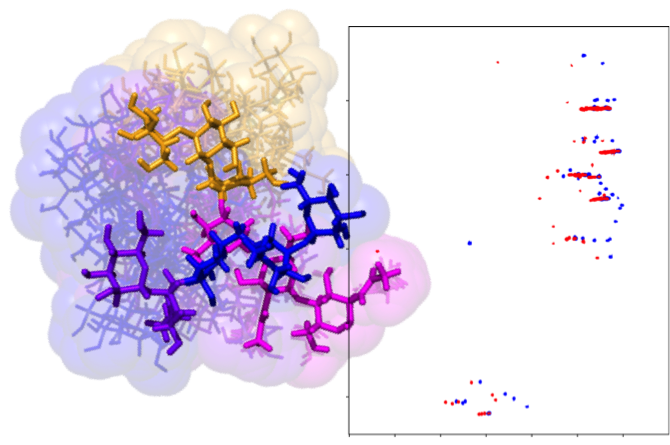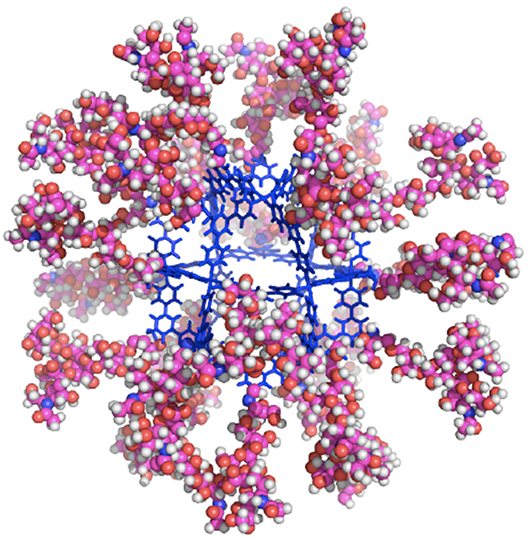
Sweet Science: Analytical and applicative research of bio-functional sugars
Laboratory on Molecular Glycoscience
Associate Professor:YAMAGUCHI Takumi
E-mail:
[Research areas]
Biomolecular science, Biofunctional chemistry, Biophysical chemistry, Organic chemistry, Supramolecular chemistry
[Keywords]
Carbohydrate, Molecular recognition
Skills and background we are looking for in prospective students
Our research interests are in analyses of biomolecules, mainly carbohydrates, and creation of bio-inspired functional molecules. Although having basic knowledge of organic and biological chemistry as well as physicochemical background is preferable, the high motivation for challenging and developing the new research field is primarily valued. We welcome students of drive!
What you can expect to learn in this laboratory
Study of carbohydrates has been attracting considerable attention as a next task in various fields including drug development and medical research. You address the task by learning and employing multidisciplinary knowledge and skills as in synthetic organic chemistry, analytical chemistry and biotechnology. You will also improve the ability to promote projects based on creative ideas and logical thinking.
【Job category of graduates】 Chemical and material industry
Research outline

Fig 1. We have developed a methodology to describe the dynamic structure of oligosaccharides based on NMR techniques in conjunction with molecular dynamics simulations.
1. Analysis of biomolecules
Carbohydrates play crucial roles in a variety of biological events such as cell-cell communications. For example, many of proteins in the living system are decorated with carbohydrate moieties, which mediate molecular recognition processes. In addition, recent evidence has demonstrated that carbohydrates on cell membranes are targets for various proteins that are associated with serious diseases, e.g., Alzheimer’s disease and Guillain-Barré syndrome. Our research seeks the underlying molecular basis for the function of carbohydrates, providing knowledge for the rational design of drugs and biomolecular engineering that contribute towards a detailed understanding of living systems.
2. Creation of bio-inspired molecules
Using the combination approaches based on the chemical design and hybridization of artificial molecules with biological materials can generate unique molecular systems having the fundamental functions of life. Toward controlling biological functions of oligosaccharides and expanding in their applications, we attempt to create artificial glycomolecules (neoglycoconjugates) through bridging between synthetic chemistry and biomolecular science. The effective hybrid approaches have been enabling not only the establishment of dynamic systems mimicking nature and thus well-defined models for biophysical understanding, but also the creation of those with highly advanced, integrated functions.

Fig 2. Attachment of oligosaccharides to a spherical supramolecule provided neoglycoclusers,
which possess potential functional ability through multivalent interactions.
Key publications
- Comprehensive characterization of oligosaccharide conformational ensembles with conformer classification by free-energy landscape via reproductive kernel Hilbert space, T. Watanabe, H. Yagi, S. Yanaka, T. Yamaguchi, K. Kato, Phys. Chem. Chem. Phys., 23, 9753–9760, 2021.
- Experimental and computational characterization of dynamic biomolecular interaction systems involving glycolipid glycans, K. Kato, T. Yamaguchi, M. Yagi-Utsumi, Glycoconj. J. 39, 219–228, 2022.
- NMR analyses of carbohydrate–water and water–water interactions in water/DMSO mixed solvents, highlighting various hydration behaviors of monosaccharides glucose, galactose and mannose, H. Tatsuoka and T. Yamaguchi, Bull. Chem. Soc. Jpn., 96, 168-174, 2023.
Equipment
NMR spectrometer
Mass spectrometer
Computer cluster
Liquid chromatography system
Teaching policy
To design, create and utilize your own molecules is emphasized. We also aim to improve communication skills through research activities, such as scientific discussions with colleagues in the lab and presentations of research results at academic conferences.
[Website] URL : https://www.jaist.ac.jp/ms/labs/t-yamaguchi/index.html